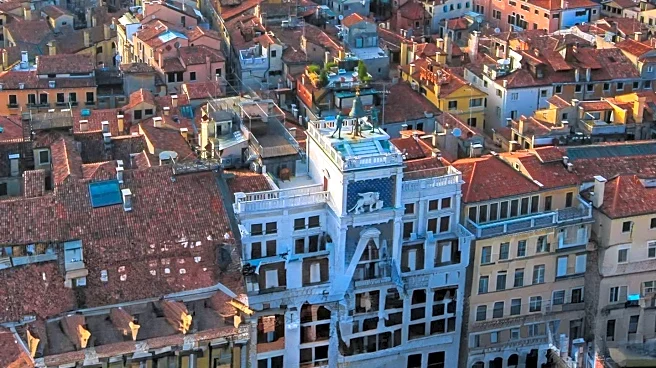What's Happening?
Venice, Italy, has a history dating back to the sixth century, evolving from a refuge for invaders to a powerful trading empire. The city was a key player in the Silk Road trade route, connecting Europe
with Asia. Venice's strategic location and maritime prowess enabled it to become a major economic and cultural center. However, the city's decline began with the fall of Constantinople and the rise of new trade routes. Today, Venice faces challenges such as environmental threats and the impact of tourism.
Why It's Important?
Venice's historical significance as a trading power and cultural hub has left a lasting legacy on global commerce and art. The city's decline highlights the impact of geopolitical shifts and technological advancements on historic centers. Venice's current challenges, including climate change and overtourism, underscore the need for sustainable preservation efforts. Protecting Venice's cultural heritage is vital for maintaining its status as a global icon and ensuring its economic viability.
What's Next?
Venice is implementing measures to address environmental threats, such as the MOSE flood barrier project. The city is also exploring sustainable tourism practices to mitigate the impact of visitors on its infrastructure and local community. Efforts to preserve Venice's cultural heritage and adapt to modern challenges are ongoing, with a focus on collaboration between local authorities and international organizations. The city's future depends on balancing preservation with economic interests.
Beyond the Headlines
Venice's experience offers insights into broader issues of cultural preservation and environmental sustainability faced by historic cities worldwide. The ethical considerations of managing tourism and protecting cultural heritage are complex, requiring innovative solutions and international cooperation. Venice's approach can serve as a model for other cities grappling with similar challenges.










